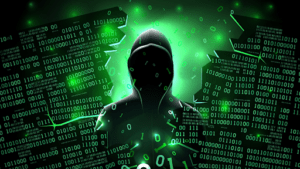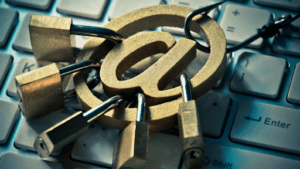
Are you curious about becoming an ethical hacker but unsure where to start? You’re not alone! Ethical hacking is a booming field that’s both exciting and crucial in today’s digital world. If you’re just starting out, enrolling in an introductory fast-track course can help you break into the information technology sector.
With cybersecurity more critical than ever, ethical hackers—also known as white hat hackers—play a vital role in defending organizations from cyberattacks by identifying and fixing vulnerabilities before malicious hackers can exploit them.
In today’s world of constant digital threats, ethical hackers are essential protectors of our digital landscape. With cyberattacks growing in complexity and frequency, businesses need to stay ahead of the game, and that’s where ethical hacking comes in. But what exactly does it take to be a certified ethical hacker? Let’s explore the top 10 essential skills needed for ethical hacking.
Importance of Ethical Hacking in Today’s World
As per the reports from the (ISC)² Cybersecurity Workforce Study, as of 2023, there is a global shortage of approximately 3.4 million cybersecurity professionals, leaving a significant number of positions unfilled within the industry worldwide. This highlights the shortage of cybersecurity professionals and the growing demand for these experts to fill these critical roles and help safeguard organizations against rising cyber threats.
It takes 20 years to build a reputation and a few minutes of cyber-incident to ruin it. — Stephane Nappo (Global Chief Information Security Officer
Networking Knowledge
To be an efficient, ethical hacker, mastering knowledge is non-negotiable.
Understanding network protocols
Networking is the foundation of the Internet. Ethical hackers need to understand how data travels between systems through various network protocols like TCP/IP, HTTP, and DNS. This knowledge helps hackers identify vulnerabilities in data transmission, allowing them to secure communications.
Importance of Network Security
A deep understanding of network security is crucial. Ethical hackers need to know how firewalls, intrusion detection systems (IDS), and virtual private networks (VPNs) work. Mastering these concepts allows them to identify weaknesses and secure network infrastructures, preventing cyber-attacks.
Knowledge of Operating Systems
Operating systems are at the core of every system ethical hackers work with.
Linux vs. Windows for Hackers
Most ethical hackers prefer Linux because of its open-source nature, flexibility, and robust security features. However, knowledge of Windows is equally important since many enterprise systems run on it. Hackers should be comfortable navigating both environments.
As per reports from the AV-Test Institute, 83% of malware attacks in 2023 specifically targeted Windows systems. This makes it essential for ethical hackers to understand how to both secure and exploit vulnerabilities within the Windows operating system.
Command Line Proficiency
Ethical hackers must be comfortable using the command line, especially in Linux, as it is more efficient than graphical interfaces for hacking tasks. Command line proficiency allows hackers to perform tasks like file manipulation, process management, and network configuration faster and more precisely. Mastering the command line is crucial for running scripts, configuring tools, and executing tasks directly on the system.
Programming Skills
Programming lies at the heart of ethical hacking. Understanding how software works from the inside gives hackers the ability to find weaknesses and vulnerabilities in the code.
Languages to Learn
Ethical hackers should start with versatile languages like Python for scripting and automating tasks, as it is user friendly and widely used in cybersecurity. Java is essential for web application testing , vehicle C++ helps hackers exploit lower-level systems, understand memory management and manipulate code at a deeper level.
Scripting for Automation
Automation can save time and streamline repetitive tasks like scanning networks or testing vulnerabilities. Ethical hackers use scripting languages to automate processes, allowing them to focus on more complex hacking tasks. Learning to write scripts enhances efficiency and enables ethical hackers to run sophisticated tests across multiple systems.
Familiarity with Tools and Software
Ethical hacking involves the use of specialized tools to identify vulnerabilities and weaknesses in systems. Knowing which tools to use and how to use them effectively is crucial.
Common Tools
Nmap: A networking scanning tool used to identify open ports, running services, and potential vulnerabilities in networks.
Metasploit: A penetration testing framework that helps ethical hackers exploit known vulnerabilities in systems.
Wireshark: A packet analyzer that captures and inspects data packets traveling across a network, helping hackers understand data flow and identify suspicious activity.
How to Use These Tools Effectively
Simply knowing the tools isn’t enough; ethical hackers must know how to use them skillfully. Nmap can map a network and reveal critical vulnerabilities, but analyzing the results correctly is key. Similarly, Wireshark requires expertise in reading packet data to pinpoint weaknesses. Mastering these tools ensures an ethical hacker can identify and access system security flows.
Understanding Web Applications
Web applications are a common target for hackers, so understanding how they work and their vulnerabilities is vital for ethical hackers.
Web Vulnerabilities (SQL Injection, XSS)
Common vulnerabilities include SQL injection, where malicious SQL code is injected into queries to manipulate databases, and Cross site scripting (XSS) where attackers inject malicious scripts into web pages. Ethical hackers must be able to detect and exploit these weaknesses to help secure web applications.
Secure Coding Practices
Ethical hackers need to understand secure coding practices to ensure vulnerabilities are patched effectively. This includes input validation, proper session management, and encryption practices that prevent common attacks. By understanding how secure code should be written, ethical hackers can suggest improvements and help developers strengthen their applications.
Penetration Testing Techniques
Penetration testing is one of the core responsibilities of an ethical hacker. It’s a methodical approach to uncover vulnerabilities by simulating real world attacks.
Types of Penetration Testing
Ethical hackers perform different types of penetration tests:
- Black box testing: Testing without prior knowledge of the system.
- White box testing: Testing with full knowledge of the system.
- Gray box testing: A mix of both, with partial knowledge.
Steps in a Penetration Test
The typical penetration testing process includes:
- Reconnaissance: Gathering information about the target.
- Scanning: Identifying vulnerabilities and entry points.
- Exploitation: Attempting to exploit these vulnerabilities.
- Reporting: Documenting findings and suggesting solutions.
Risk Assessment and Management
Understanding risk is key to preventing future attacks.
Identifying Vulnerabilities
Ethical hackers must be able to spot weaknesses across systems, whether they’re software bugs, weak passwords, or unpatched systems. Vulnerability scanning and regular audits help in early detection.
Mitigation Strategies
Once vulnerabilities are identified, ethical hackers need to provide solutions. This could include patching systems, enforcing stronger access controls or recommending secure configuration changes to reduce the likelihood of an attack.
Social Engineering Awareness
Technical skills alone are not enough; hackers need to be more aware of the human element, too.
Common Social Engineering Attacks
Common forms of social engineering include phishing, where attackers send deceptive emails to trick users into providing sensitive information, and pretexting, where hackers create a fake scenario to gather data. These attacks often exploit human error, which is why awareness is crucial.
Preventative Measures
Ethical hackers should help organizations develop preventative measures, such as employee training programs that highlight the risks of phishing and other social engineering tactics.
Implementing multi factor authentication (MFA) and educating users about identifying suspicious behavior can go a long way in preventing these types of attacks.
Cryptography Knowledge
Data protection is at the heart of cybersecurity, and ethical hackers need to understand the principles of cryptography in order to secure sensitive information.
Basics of Encryption
Encryption converts data into a secure format that unauthorized users cannot easily decode. Ethical hackers should be familiar with common encryption algorithms like AES and RSA, which are used to secure data. Knowing how these algorithms work helps hackers assess whether encryption is being properly implemented.
Importance of Secure Communication
Ensuring secure communication channels is vital, especially for sensitive data like financial transactions or personal information. Ethical hackers must ensure that data is encrypted both at rest and during transmission and that encryption keys are well-protected.
Continuous Learning
The field of cybersecurity is constantly changing, and ethical hackers need to stay ahead of new threats, tools, and techniques.
Keeping Up with Industry Trends
Cybersecurity is an ever-evolving field. Ethical hackers must regularly update their knowledge by reading cybersecurity blogs, attending webinars, and participating in online communities. Staying informed about the latest hacking techniques and security trends is crucial for staying effective in this field.
Certifications and Training Opportunities
Certifications are an excellent way for ethical hackers to demonstrate their skills and stay current. Popular certifications include Certified Ethical Hacker (CEH), CompTIA Security+, and Offensive Security Certified Professional (OSCP). These certifications provide structured learning paths and help you improve your standing in the Information Technology field.
Conclusion
Ethical hacking requires a diverse set of skills, from deep technical knowledge to an understanding of human psychology. The top 10 skills we’ve explored form the core of what it takes to be a successful ethical hacker. By mastering these skills, ethical hackers can safeguard systems, protect sensitive data, and stay one step ahead of malicious attackers in the ever-changing landscape of cybersecurity.
If you’re new to IT, starting with basic security certification courses will help you build a solid base. For those with more experience, continuous learning, and practical application are crucial to staying competitive and effective in ethical hacking.
Ready to enhance your cybersecurity skills? At CCI Training Center, students can access hands-on courses in ethical hacking, network security, and various other topics designed to help them succeed in today’s digital landscape.
Get in touch with CCI Training Center today to learn how they can help you reach your career goals!
Program Offered
- Pharmacy Technician Training
- Online Medical Assistant
- Medical Billing and Coding Specialist Program
- Cloud Computing Technician Training
- Computer Network Technician
- Business and Accounting
- Radiology Technician Training
- Medical Assistant Program
- Computer Support Technician
- Cybersecurity Program
- Virtual Assistant Training

This article is written by
Share this article
Related Articles




















